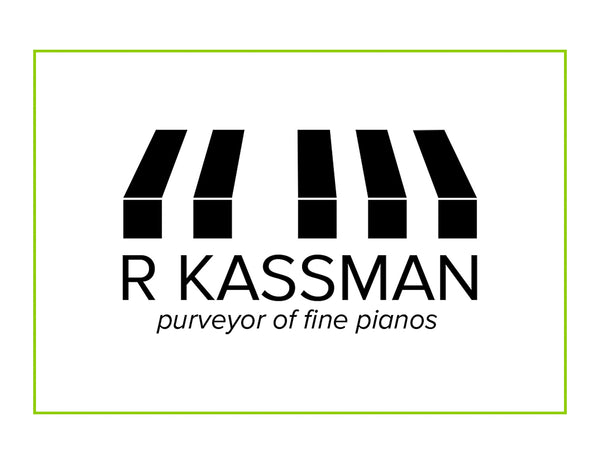
Proper Care for Your European Piano: A Guide to Piano Tuning and Maintenance
For musicians and piano enthusiasts, investing in a European piano is a decision that brings both joy and responsibility. European pianos, known for their exceptional craftsmanship and tonal beauty, require consistent care and maintenance to preserve their unparalleled musicality. Proper tuning and upkeep not only ensure that your European piano maintains its exquisite sound but also guarantees its longevity.
Understanding the importance of regular tuning is crucial for maintaining the character and function of your European piano. Tuning ensures that each note is corrected to the optimal pitch, enabling the instrument to produce a harmonious and resonant sound. Additionally, we'll explore the impact of environmental factors, such as humidity and temperature, on piano performance and longevity, offering practical solutions for mitigating these effects.
In this blog, we'll discuss the art of piano tuning and maintenance, offering invaluable advice for caring for your treasured instrument and preserving it for future generations.
Perfecting Your Piano’s Pitch: The Importance of Regular Tuning
Regular tuning is essential to maintaining your European piano's rich and harmonious sound. Over time, fluctuations in temperature, humidity, and general wear can cause the strings to stretch and lose tension, resulting in pitch changes. To achieve an optimal balance of pitch and tonality, pianos need to be tuned by experienced professionals at least twice a year.
For new pianos, it's crucial to schedule more frequent tunings during the first year, as the strings will still be adjusting and settling. By ensuring that your piano is consistently in tune, you'll not only enhance your playing experience but also protect the instrument's internal components from undue stress that could result in costly repairs.
Protected from the Elements: Managing Humidity and Temperature
Environmental factors, such as humidity and temperature, can significantly impact your European piano's performance and longevity. Excess humidity can cause the wooden components to swell, alter the action, and create other structural issues within the piano, while extremely dry conditions can lead to shrinking and cracking.
To protect your piano from these environmental risks, aim to maintain a consistent temperature (ideally between 68-72°F) and humidity level (between 40-50%) in the room where the piano is located. Consider investing in a piano-specific humidity control system, or use a room humidifier or dehumidifier, depending on your local climate. By taking these proactive steps, you'll ensure your piano remains a well-tuned masterpiece for years to come.
Keeping Your Piano Pristine: Cleaning and Maintenance Techniques
Regularly cleaning and maintaining your European piano is crucial for preserving its elegant appearance and smooth operation. Begin by dusting the piano's exterior with a soft, lint-free cloth to remove dirt and debris. Avoid using common furniture polish that may contain harmful chemicals. Instead, opt for a piano-approved polish or solution mixed with distilled water.
When cleaning the keys, use a lightly dampened cloth with a solution of mild soap and water, being sure to wipe each key individually and avoid any excess moisture. Take care to clean the black keys first, followed by the white keys, to prevent color transfer. To maintain the piano's interior components, consult your piano technician for recommendations based on your specific instrument.
Working with a Trusted Piano Technician
Regular maintenance and tuning by a professional piano technician are vital for preserving your European piano's performance and value. Skilled technicians not only ensure that your instrument is in tune but also inspect and adjust the piano's mechanical components as needed.
When looking for a piano technician, seek those who are certified by reputable organizations, such as the Piano Technicians Guild. Recommendations from fellow piano owners, music teachers, or piano dealers can also be invaluable in finding the right technician for your instrument. Schedule maintenance appointments at least twice a year or more frequently if your piano is heavily used or exposed to significant temperature or humidity fluctuations.
Final Thoughts
By following the expert tips outlined in this guide, you will be well-equipped to preserve and protect your European piano, ensuring that it remains a testament to the craftsmanship and legacy of these renowned instruments. With regular tuning, proper environmental control, and diligent cleaning and maintenance, your European piano will provide a lifetime of unparalleled musical enjoyment.
As your trusted resource, R. Kassman piano store in Berkeley is always here to assist you with any questions or support for your piano's care and sustenance, fostering your enduring relationship with the beauty and artistry of these extraordinary instruments.
